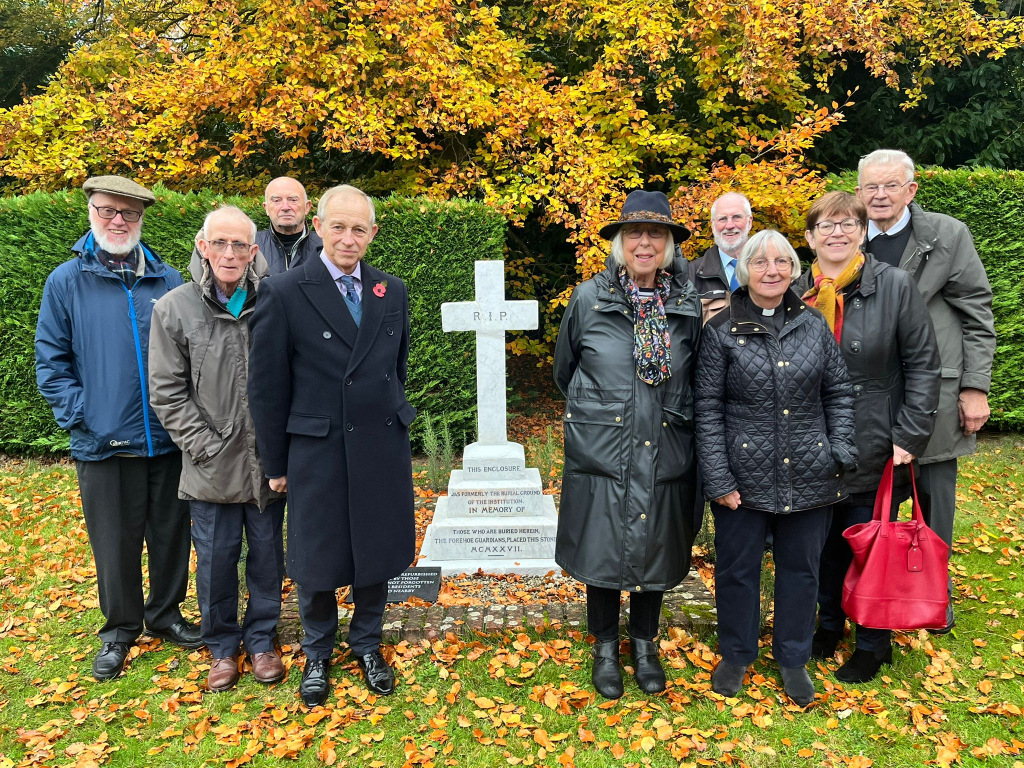Our mystery farmer in the Wymondham area takes a break from rodding drains to tell you what he’s been up to in the last month.
Shovelling up the kids’ rotten pumpkins. Picking up firework sticks. November is a month of mud on roads, complaints about mud on roads, snatched windows of opportunity to drill more winter wheat (cereal crop varieties are either called winter or spring, depending upon which side of winter they’re designed to be sown), spray for diseases and then harvest some of our sugar beet.
It’s also the first month after harvest where the weather allows you to take a breath, enjoying shoot days - whether you’re on a peg or beating through the undergrowth - and perhaps, livestock permitting, a couple of nights off-farm.

Early November was dry, the rain in October seeming a distant memory. The weather, and particularly the rain, shapes the rhythms of the farm through the year. “Well sown is half grown” as they say, and judging the right conditions to go out and drive machinery over a field is often in reality a judgement call, as to the least worst conditions you can afford to go out in. In 2024 a farmer’s window of opportunity to plough, or cultivate or drill is comparatively narrow.
A modern farm must work with minimal staff and a small number of larger machines to work efficiently. The UK has one of the highest wheat yields in the world, partly due to our favourable weather, but also because our high cost of production requires us to be efficient with what we’ve got: soil, seed, inputs like fertiliser and chemicals, machinery and labour. During our busiest seasons we’ll be working long hours (too long to say here without the clipboard brigade getting excited about it) and we use satellites and soil mapping data plugged into onboard computers that control how much of an input we apply.
This saves money and is better for the environment: any input not taken up by the soil or plant will wash away into our ditches and rivers, which is bad for water quality. The government say that farmers compete with Anglian Water to be the biggest polluters of our waterways, but they comfortably beat us every year.

We’ve recently bought a new drill (as in drill, the machine that goes on the back of the tractor that puts seed into the ground, that kind of drill, though we have the other kind in our workshop too) that promises to move less soil than our other drills, and therefore also wear up less metal, burn less diesel and take less of our time. Everything in farming being a compromise however, you need to apply more chemicals to control your weeds and the drill won’t work so well later in the year when the ground is wetter. A grant from the government helped justify the expense of a new piece of machinery, since without it we would have had to sell one of the other drills to justify the cost – and those drills are the ones we need when the weather is bad.
If you follow the news you’ll have seen a lot about farmers and farming after the Budget. Without getting into a debate about the merits or otherwise of the recent changes, UK farming is a heavily regulated and subsidised sector, cheap abundant food being considered the highest of our needs alongside clean water and good sanitation. It’s been this way since before both world wars and before the Corn Laws in the 19th Century. We farmers talk (complain, mostly) a lot about regulation because we are reliant on the kindness of strangers to keep us in business, chiefly taxpayers and consumers.
Fortunately for us and our muckspreaders, farmers enjoy a lot of support from the British public, so we’d like to take the opportunity to thank you for any support you give and are able to give us, whether that’s your patience when we’re blocking the road with large machinery, your custom when buying food from the supermarket (marked with the Red Tractor) or supporting your local farm shops and farm businesses.















